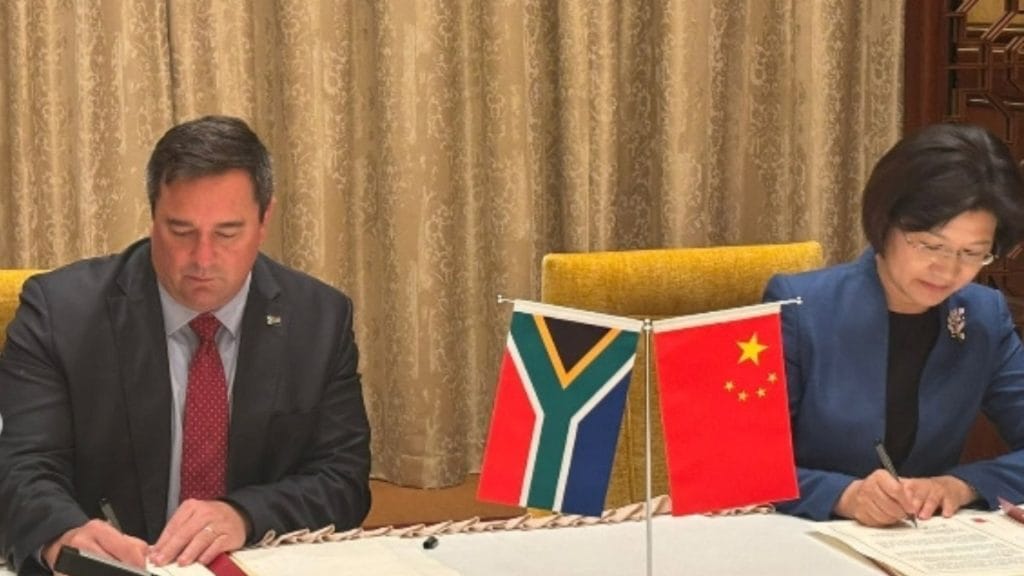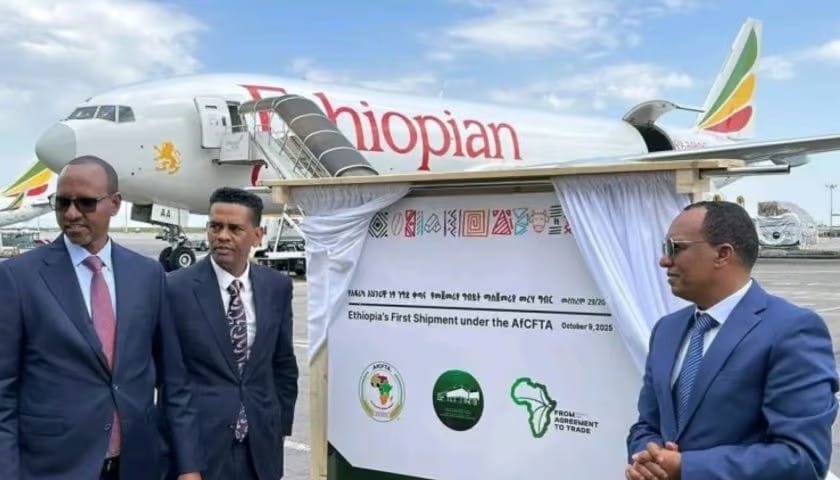Welcome to this week's roundup everyone!
This is Hannatu, your guide to Africa’s agricultural revolution.
This week saw both opened doors and tough realities. On the one hand, African countries secured some funding as well as major trade access to expand their markets.
On the other hand, the challenges of operating on the continent were starkly visible. A promising South African insect farming startup was forced to shut down due to continuous power cuts, and the country's state-run vaccine manufacturer saw a severe performance drop, risking animal health across the country.
It’s a week that reminds us of both the continent’s vast promise and the critical need to fix core infrastructure.
Let’s get into the details.
P.S. If you have news, jobs, events, or opportunities in the agritech or agriculture space, we’d love to feature them in AgSafari.
🌍 Agritech Roundup
South Africa and the United States are moving closer to a new trade agreement that could lower tariffs and secure thousands of local jobs. Trade Minister, Parks Tau, confirmed that recent negotiations have made progress toward a deal on tariffs, which would be mutually beneficial. These talks come after the U.S. government’s decision to impose 30 percent tariffs on certain South African exports last year.
South Africa’s stone fruit industry has entered a new phase of growth after China granted market access for five fruit types, including peaches, plums, and apricots. This agreement, signed in Shanghai, is expected to inject about R393 million ($22.64 million) into the South African economy over the next five years.
The government of Ghana has announced it will waive taxes on agro-processing machinery in the short term to boost investment in the sector. This initiative is part of a strategy to promote industrialization and ensure the sector has enough machinery. The decision will reduce costs for local processors, increase access to modern technology, and improve efficiency across the food value chain.
A South African insect farming startup, Inseco, has ceased operations and sold its assets after facing a series of setbacks. The company, which produced protein and fertilizer from black soldier fly larvae, cited recurring four-hour power outages as the main problem. The power cuts increased costs, damaged customer relationships, and showed the severe operational challenges caused by loadshedding in the country.
Ethiopia has officially begun exporting goods under the African Continental Free Trade Area (AfCFTA) framework. The first shipment, which included meat, fruits, and other farm products, was sent to Somalia, Kenya, and South Africa. This event is a huge sign of Ethiopia’s active participation in the continent’s single market and shows its readiness to expand trade with its African neighbors.
In Morocco, a program called ElleMoutmir is taking a stronger role in agriculture by equipping rural women with the skills and tools they need to improve their farms. The project combines technical support, business training, and mentorship to promote inclusive farming practices. Women constitute a significant portion of the Moroccan agricultural workforce, providing more than 50% of the labor.
Mali has returned to the top position in African cotton production, with an estimated production of 656,751 tonnes of cottonseed. This level was achieved despite irregular rainfall and rising input costs, showing the strength of the country’s farmer support model.
South Africa’s state-run vaccine manufacturer, Onderstepoort Biological Products (OBP), is facing a collapse after failing to meet most of its key targets in the past financial year. OBP achieved only 62 percent of its performance goals and saw profit drop sharply from R231 million ($13.4 million) to R186 million ($10.6 million) in one year. This fall in performance is directly linked to a 24 percent drop in vaccine production, risking weaker disease control for livestock.
💸 Deal Roundup
The European Union has granted Nigeria a $220.5 million credit via commercial banks. The funding, provided by the European Investment Bank, aims to broaden the lending available to the agricultural sector and help increase the flow of capital to farmers and agribusinesses across the country.
Singapore-based Indorama Group, through its subsidiary, has signed an agreement with Senegal for a $210 million investment program. The plan will be implemented over three years, from 2025 to 2028. This major foreign direct investment is set to boost Senegal's economy and its industrial capacity.
Ghana has signed a financing agreement with Italy worth $179 million to support agricultural and climate resilience. The agreement is part of a national program for sustainable land development. This funding is aimed at boosting the country’s farming sector and strengthening its ability to adapt to climate change effects.
The International Finance Corporation (IFC) has proposed $31 million in new commitments to two agriculture-focused impact funds. This includes a $6 million commitment to Catalyst Fund Resilience I, which supports early-stage agri-tech companies across Africa. The remaining $25 million is proposed for a fund focused on timber and carbon removal in Brazil.
Kenya’s Pyramidia Ventures has successfully raised $1.5 million to expand its growing portfolio of agri-tech startups. The company focuses on delivering climate-smart solutions across Africa.
💼 Talent Safari - Jobs of the Week
Talent Safari is Tech Safari’s trusted hiring partner. It helps innovative companies across Africa find high-quality vetted talent for their teams. Here are some open roles:
🎓 Craydel - University Partnerships Manager, Finance Manager - Nairobi, Kenya
🌐 Share - Senior Network Engineer - Mombasa, Kenya
🍑 Peach Payments - Engineering Manager, Senior QA Engineer [MX], Senior Software Engineer - Backend, Senior Software Engineer - Full Stack [Commerce Pod], Senior Software Engineer - Full Stack [MX Pod] - Cape Town/Nairobi

📅 Events
The Africa Food Show Morocco 2025 (AFS Morocco) will take place from November 19–21, 2025, in Casablanca. This event will bring together global food producers, buyers, innovators, and policymakers to discuss the future of the continent’s agri-food value chain.
And that wraps up the week!
On Tuesday, we’re bringing you another interesting deep dive into Africa’s agric ecosystem!
So stay tuned and share this newsletter with a friend.
Cheers,

Join Ag Safari
Ag Safari is the go-to newsletter for anyone curious about agricultural innovation and potential across Africa. Every week, we deliver tactical insights, news, and founder-led advice straight to your inbox.




